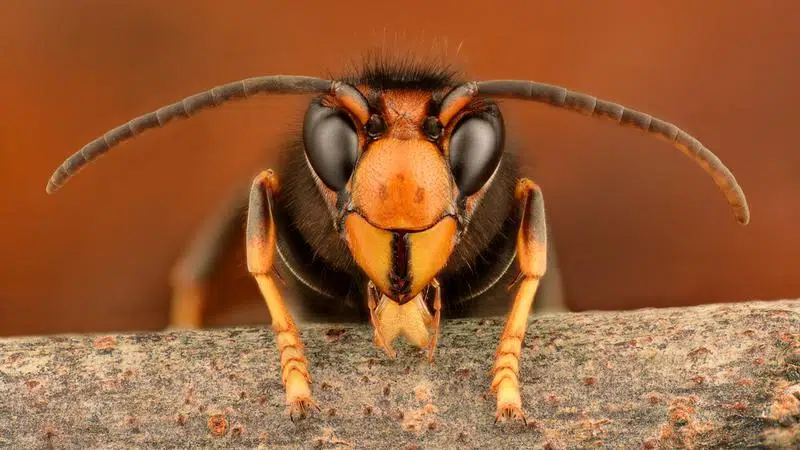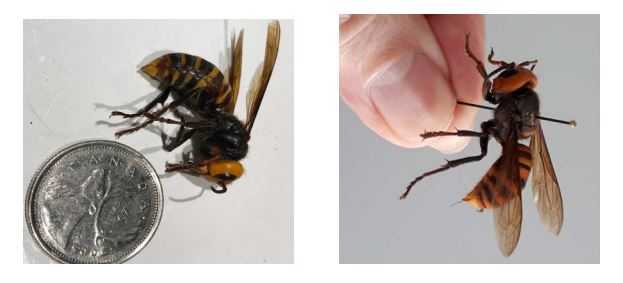
Asian giant hornets found in Nanaimo for first time ever
NANAIMO — An aggressive and excessively large species of hornet has been discovered in Nanaimo for the first time.
Three Asian giant hornets were found in Nanaimo last month, following confirmation from Canadian and International experts, sparking concerns for local beekeepers.
The hornets were discovered by two separate individuals, a few hundred metres apart in the Robins Park area of south Nanaimo.
Asian Giant Hornets are large in size, and have noticeably large orange heads and black eyes. Worker hornets are approximately 3.5 cm in length and queens can be up to 4-5 cm in length with a wingspan of 4-7cm.



